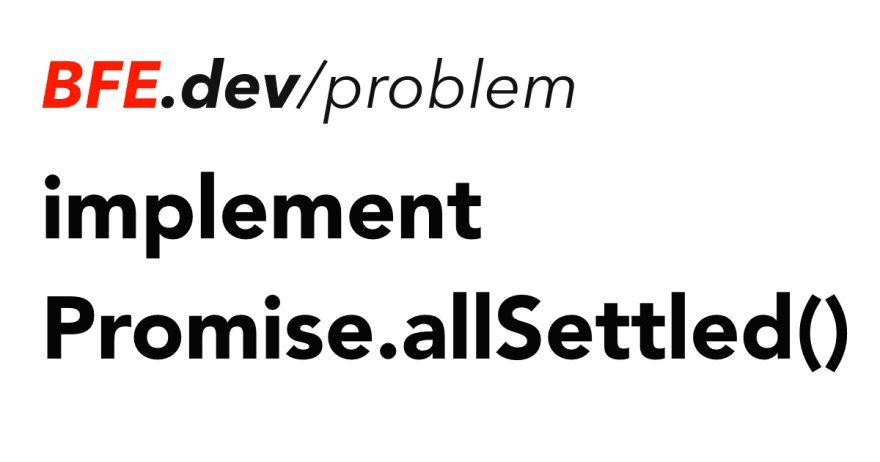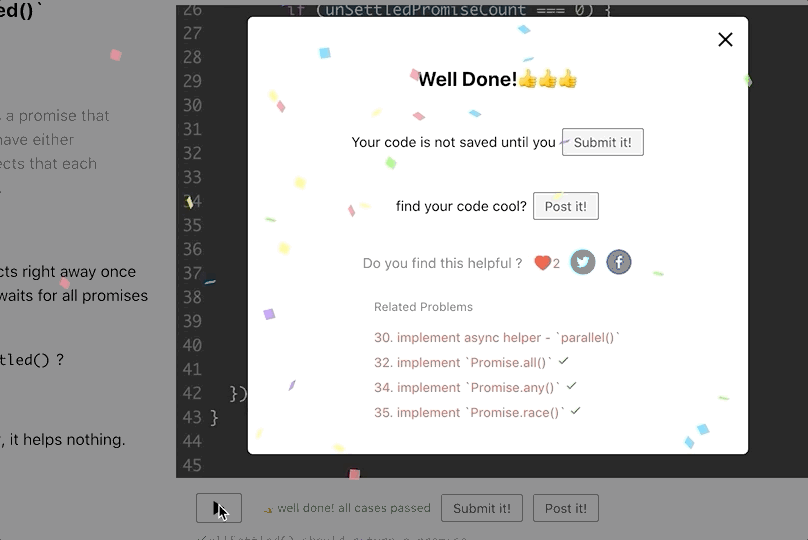BFE.dev is like a LeetCode for Front End developers. I’m using it to practice my skills.
This article is about the coding problem BFE.dev#33. implement Promise.allSettled()
Analysis
Different from Promise.all() which rejects right away once an error occurs, Promise.allSettled() waits for all promises to settle.
So we just need to keep track of all the promises, by using an array. Promises might settle in arbitrary order, so use index to set the right location.
Show me the code
First start with the basic skeleton of new Promise.
function allSettled(promises) {
return new Promise((resolve, reject) => {
const result = []
promises.forEach((promise, index) => {
promise.then((value) => {
result[index] = {
status: 'fulfilled',
value
}
}, (reason) => {
result[index] = {
status: 'rejected',
reason
}
})
})
})
}
Then we need to resolve when all promises are settled, so use a counter to achieve this.
And also notice that the input might contain non-Promises.
function allSettled(promises) {
if (promises.length === 0) return Promise.resolve([])
const _promises = promises.map(
item => item instanceof Promise ? item : Promise.resolve(item)
)
return new Promise((resolve, reject) => {
const result = []
let unSettledPromiseCount = _promises.length
_promises.forEach((promise, index) => {
promise.then((value) => {
result[index] = {
status: 'fulfilled',
value
}
unSettledPromiseCount -= 1
// resolve after all are settled
if (unSettledPromiseCount === 0) {
resolve(result)
}
}, (reason) => {
result[index] = {
status: 'rejected',
reason
}
unSettledPromiseCount -= 1
// resolve after all are settled
if (unSettledPromiseCount === 0) {
resolve(result)
}
})
})
})
}
Passed
This is a fairly simple problem.
Hope it helps, you can have a try at here




Top comments (0)